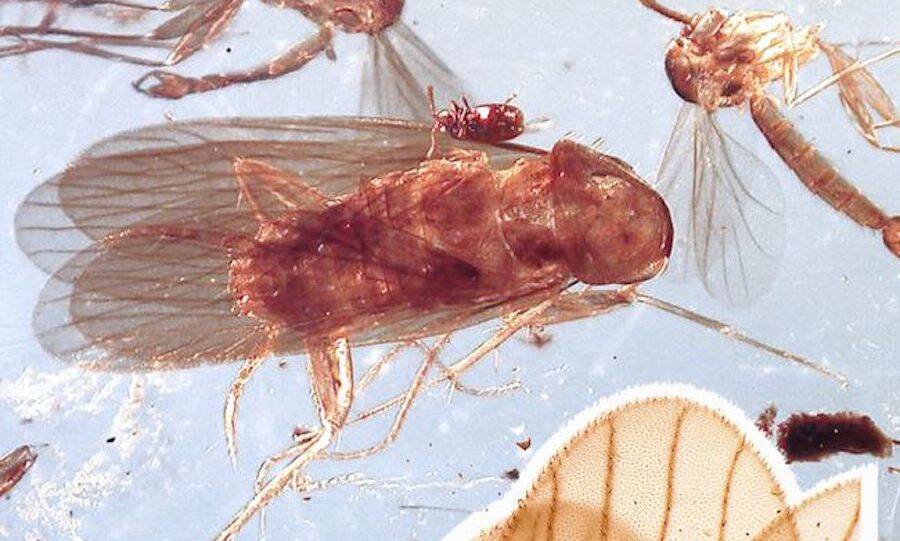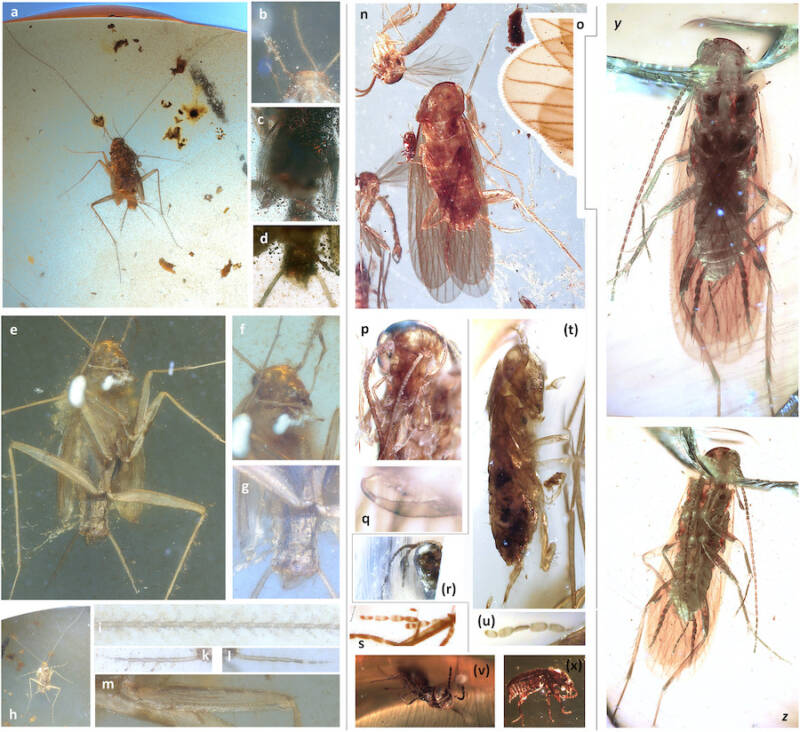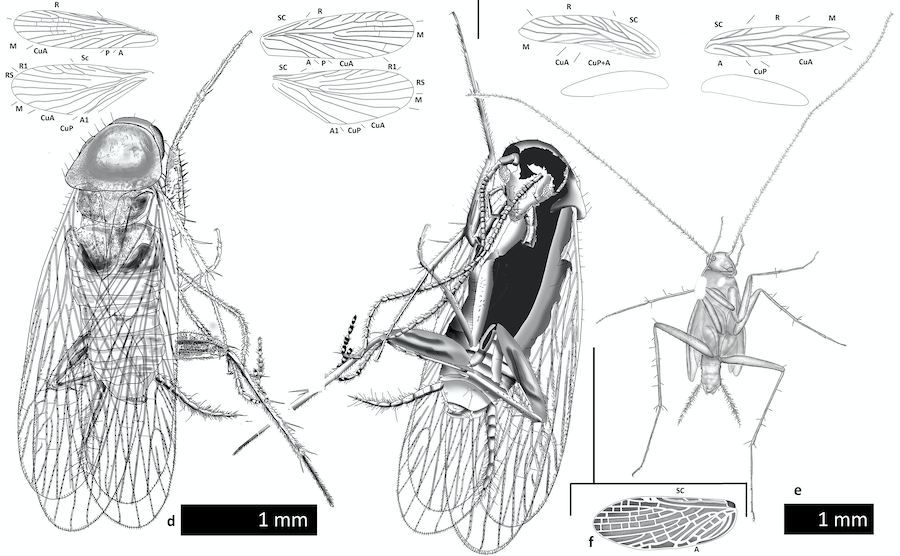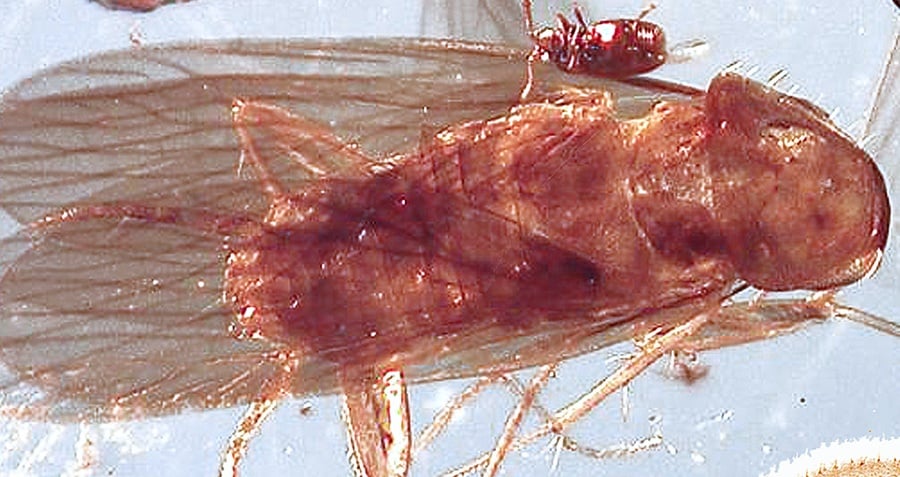Secrets Frozen in Time: Two Mysterious Ancient Cockroach Species Unearthed in Myanmar Amber Cave
So, picture this: two tiny critters, stuck in amber for a staggering 99 million years, just chilling while dinosaurs roamed around like they owned the place. Yep, scientists digging through a cave in Myanmar stumbled upon ancient cockroaches—Crenocticola svadba and Mulleriblattina bowangi—that are not just any bugs, but bona fide dinosaur-era cave survivors. You’d think after all that chaos, these cave-dwellers would have checked out, right? Nope. These perfectly preserved little troglomorphic insects (that’s just a fancy term for cave-adapted species) seem to have been feasting on dino droppings and living their best subterranean lives while T. rex did his thing. It kinda makes you wonder—if cockroaches could survive a mass extinction, what hope do the rest of us have? Talk about resilience! Curious how these ancient roommates ended up trapped in amber deep underground? Let’s just say tree roots and sticky resin had a part to play in this prehistoric preserve. Dive into this wild discovery and see how it flips what we thought we knew on its head—because, trust me, this survival story is way cooler than your average bug tale. LEARN MORE
These 99 million-year-old discoveries represent “the only known dinosaur age cave survivors.”

Lenka Podstrelená, Sendi et al. Gondwana Res 2020 (Copyright Elsevier 2020)The two species likely descended from a common ancestor, before the supercontinent of Gondwana drifted apart.
An international team of researchers just discovered two new ancient species of cockroach. Discovered in amber in a cave in Myanmar, they’ve been named Crenocticola svadba and Mulleriblattina bowangi. Both are part of the Nocticolidae family and officially 99 million years old.
According to Phys, their remarkable age places them squarely in the Cretaceous period — when dinosaurs roamed the Earth. The specimen were found in deposits from a Hukawng Valley mine, which have been used for several, unrelated studies in recent years.
This prehistoric surprise came after researchers were given 110 tons of amber to study. Prior experts had already dated the amber by dating the mine’s volcanic rocks, though nobody quite expected to find anything as old and well-preserved as this.
Published in the Gondwana Research journal, the findings represent “the only known dinosaur age cave survivors.” According to LiveScience, the “exquisitely preserved” cave-dwelling cockroaches have already rewritten history, as they were thought to only date back to 65 million years — until now.

Lenka Podstrelená, Sendi et al. Gondwana Res 2020 (Copyright Elsevier 2020)The two specimen were found in amber, with experts theorizing tree roots that burrowed into the cave and dripped resin being responsible.
These ancient roaches are now the oldest-known specimen of “troglomorphic” organisms, which denote living beings that adapt effectively to the dark and damp environs of a cave.
Though many examples of cave-dwelling insects with small eyes, wings, long arms, and antennae have been discovered, these are by far the oldest. It’s unclear how they were trapped in amber, but researchers believe tree roots that burrowed into the cave and dripped resin inside were responsible.
They also believe these cockroaches likely ate dinosaur guano, or excrement, just as modern cockroaches feed on bird and bat droppings. How they survived the apocalyptic extinction event that killed the planet’s dinosaur population remains unclear, though cockroaches are famously resilient.
“Cave environments are well suited for fossilization of bones and coprolites [or fossilized feces] and the fossil record of cave mammals includes rodents, ungulates, marsupials, ursids, felids, hyaenids, canids, primates and humans,” the study explained.

Lenka Podstrelená, Sendi et al. Gondwana Res 2020 (Copyright Elsevier 2020)The research team used microscopic photography on the ancient specimen to reveal physical traits identical to those of modern cockroaches.
Most importantly, the findings contradict previously held beliefs that cave-dwelling cockroaches first came into existence in the Cenozoic era, 65 million years ago.
Though some experts have suspected this wasn’t the case, this marks the first tangible evidence their suspicions were warranted.
The research team — consisting of experts from Slovakia, Russia, China, and Thailand — is confident the cockroaches descended from a common ancestor before the supercontinent of Gondwana drifted apart.
As it stands, the quest to confirm whether or not they have any modern relatives has begun. It’s unclear if the theory of how they were embedded in amber is accurate, but one thing is clear: jokes about cockroaches surviving an apocalypse just might be truer than we realized.
After learning about the two new species of ancient cockroach discovered trapped in amber in a Myanmar cave, read about the family of cockroaches found living inside of a man’s ear. Then, learn about the four new species of “walking sharks” discovered between Indonesia and Australia.
Auto Amazon Links: No products found.














